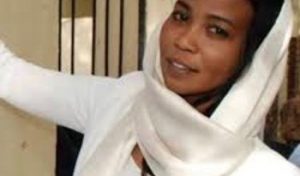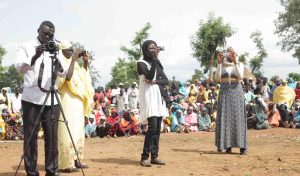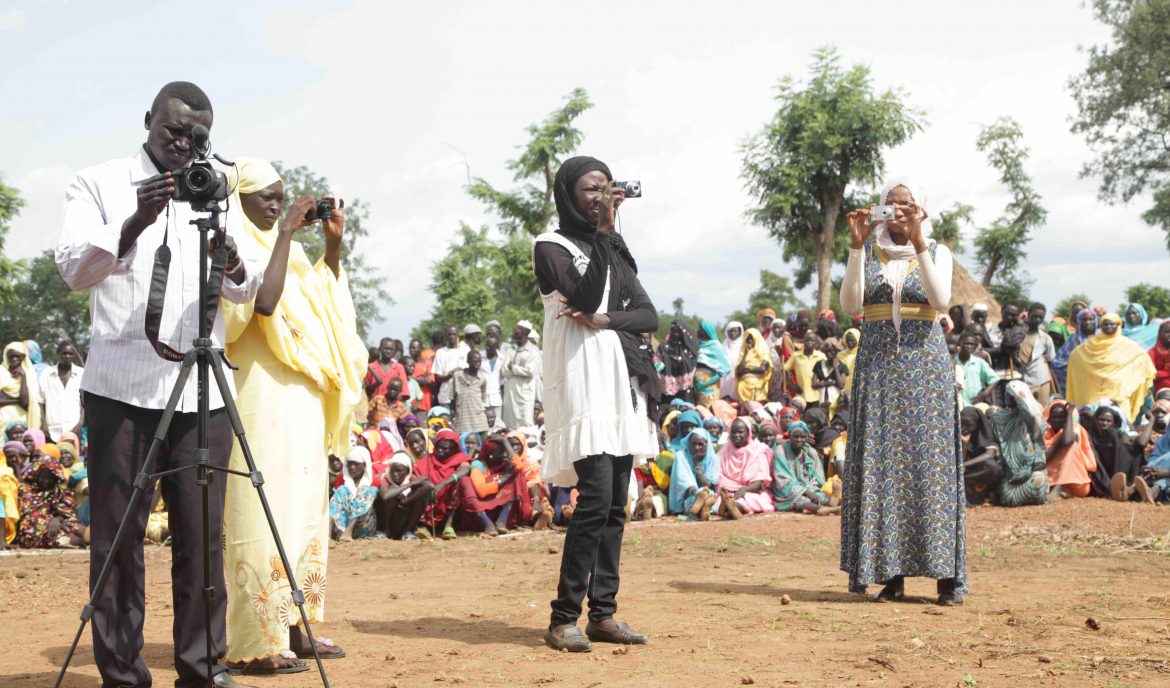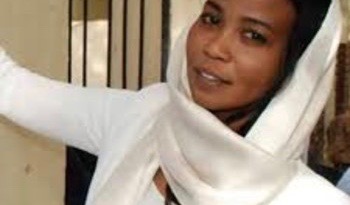Landing an entry-level gig in a newsroom for Sudanese women is a an easy task but attaining higher positions once inside is near impossible, media organizations in Sudan have said.
Discrimination against women in the media room has resulted in a high turnover and a vacuum of coverage for women-related stories.
Female journalists in Sudan make up 60 percent of the total number of people who work in the industry, according to the Sudanese Journalists Union, however very few manage to reach editorial positions.
Sabah Adam represents one of the few Sudanese females in media who managed to reach the top as the former chief editor of the daily Citizen newspaper, representing only one of two female editors in the entire country at the time. “I think women are not in higher positions –not because they are weak or anything, but only because of the guardianship approach that is in our institutions,” says Adam.
Male colleagues in the media routinely doubt women’s abilities, Adam said. “For example, people say; women cannot work till late or even travel abroad [like men],” she said. ” This is not true [but] this situation has continued and does not give them a chance to upgrade their careers.”
Currently there is not a single female chief editor in the 32 political, social and sports newspapers in Sudan.

Shamael Al-Noor (Nuba Reports)
Other female journalists view the plight of Sudanese women more holistically. “I see the problem affecting the whole society, it isn’t only facing female journalists,” said Shamael al Noor, a journalist and columnist. Al Noor recently went under attack by hardline Islamists in Sudan for writing a column that criticized government health policies. “We cannot get an answer to the question as to why women journalists are not in better positions without answering the bigger issue: why women in all the institutions are not getting upgraded?”
Higher positions for female journalists is key, Adam says, not only for more balanced coverage but also for women’s protection. According to Human Rights Watch, Sudanese security forces have used sexual violence, intimidation, and other forms of abuse to silence female human rights defenders across the country last year.
Lubna Abdullah, a journalist for the leading daily, Al Jareeda, decided to launch a support group for female journalists after observing the plight of her colleagues.
While women are quick to join the newsroom, Abdullah says, they are also the first to leave due to harassment and discrimination. “Many female journalists left the industry in Sudan; some for financial reasons, but others left because they were subjected to sexual harassment.” The problem is especially acute for younger female journalists who are subject to sexual harassment by their senior male colleagues. Abdullah is working on a research project concerning this issue to be published next week. “Female journalists are not able to talk of their own issues, let alone women’s issues in Sudan,” Abdullah added.

Journalists at event in Blue Nile State (Nuba Reports)
The dearth of female editors has led to a lack of coverage for women’s issues as a whole. A weeklong media monitoring for three major newspapers in Sudan by Nuba Reports found that only three articles related to women were published. The surveyed newspapers have the largest audience according to the Sudanese Press Council: al Sayha, al Rai al Aam and al Jareeda –the last one never published a single article during the monitoring period.
“The media coverage of the women’s issues is not enough, there are so many important issues absent from the press,” says Abdelgadir Mohamed, a journalist and author of “The Walls of Silence” a book about Sudanese press censorship.
Sudan has one of the highest rates of female genital mutilation (FGM) in the world, according to UNICEF, but local coverage of this sensitive issue is few and far between.
Many issues concerning women are considered sensitive topics by Sudan’s security that claims to adhere to a strict Islamic social code, Mohamed said, and are therefore banned from publication. Topics such as gender equality in the workplace are, in his view, detrimental to the ruling regime’s political support base that prefers “to keep women trapped between the walls of homes.”
The press freedom watchdog Reporters Without Borders considers Sudan one of the worst countries in the world for press freedom, ranking it 174 out of 180 countries.
Not only are women’s issues under-represented by the press, the media itself is also often an enemy to women’s issues. In 2009 when the journalist Lubna Hussein was arrested for wearing trousers, some local media was sympathetic but others were outright hostile. Mainstream media such the daily Al Wifaq described her supporters who took to the street protesting against her arrest as “prostitutes and homosexuals”.
Naturally, Sudan’s security also censored local coverage of the issue.
“If our voices are not heard nothing will change,” said one former female Sudanese journalist who now actively blogs. “But as long as female reporters don’t get a final say in editorial decisions, that voice will remain largely silent.”
This article was originally published by Nuba Reports on News Deeply.






